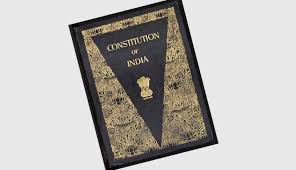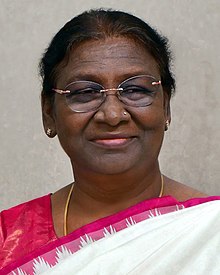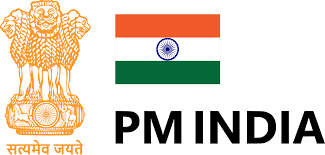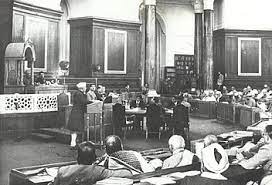1. समानता का अधिकार (अनुच्छेद 14 – अनुच्छेद 18)
यह कानून और समान सुरक्षा कानूनों के समक्ष समानता की गारंटी है, साथ ही धर्म, जाति, जाति, लिंग या जन्म स्थान जैसे कुछ आधारों पर भेदभाव का निषेध सार्वजनिक रोजगार के मामलों में अवसर की समानता देता है। अस्पृश्यता को समाप्त करें और इसके अभ्यास को प्रतिबंधित करें, सैन्य और शैक्षणिक को छोड़कर सभी खिताबों का उन्मूलन।
2. स्वतंत्रता का अधिकार (अनुच्छेद 19 – अनुच्छेद 22)
भाषण और अभिव्यक्ति की स्वतंत्रता, सभा, संघ, आंदोलन, निवास और पेशे से संबंधित छह अधिकारों का संरक्षण। ये छह अधिकार केवल राज्य की कार्रवाई के खिलाफ सुरक्षित हैं, न कि निजी व्यक्तियों के खिलाफ। ये अधिकार विदेशियों के लिए उपलब्ध नहीं हैं बल्कि केवल नागरिकों के लिए उपलब्ध हैं। आरोपी व्यक्ति को अत्यधिक और मनमानी सजा से सुरक्षा प्रदान करता है। यह नागरिकों और विदेशियों दोनों के लिए उपलब्ध है। स्वतंत्रता का अधिकार यह भी कहता है कि कानून द्वारा स्थापित प्रक्रिया के अनुसार किसी भी व्यक्ति को उसके जीवन या व्यक्तिगत स्वतंत्रता से वंचित नहीं किया जाएगा। इसमें यह भी प्रावधान है कि राज्य छह से चौदह वर्ष की आयु के सभी बच्चों को मुफ्त और अनिवार्य शिक्षा प्रदान करेगा। यह गिरफ्तार या हिरासत में लिए गए व्यक्तियों को सुरक्षा प्रदान करता है।
3. शोषण के विरुद्ध अधिकार (अनुच्छेद 23 – अनुच्छेद 24)
यह मानव तस्करी, जबरन श्रम और इसी तरह के अन्य प्रकार के जबरन श्रम को प्रतिबंधित करता है। यह 14 वर्ष से कम आयु के नाबालिग बच्चों को किसी भी खदान, कारखाने या अन्य खतरनाक गतिविधियों जैसे निर्माण कार्य या रेलवे में नियोजित करने पर भी रोक लगाता है।
4. धर्म की स्वतंत्रता का अधिकार (अनुच्छेद 25 – अनुच्छेद 28)
सभी व्यक्तियों को समान रूप से अंतरात्मा की स्वतंत्रता और स्वतंत्र रूप से धर्म का अभ्यास करने, प्रचार करने और मानने का अधिकार है। प्रत्येक धार्मिक वर्ग को निम्नलिखित अधिकार होंगे:
1. धार्मिक और धर्मार्थ उद्देश्यों के लिए संस्थानों को बनाए रखना और स्थापित करना
2. धर्म के मामलों में अपने मामलों का प्रबंधन करें
3. चल और अचल संपत्ति का अधिग्रहण और स्वामित्व
4. ऐसी संपत्ति का कानून के अनुसार प्रशासन करें
एक धर्म के प्रचार के लिए कराधान से मुक्ति देता है इसका मतलब है कि किसी भी व्यक्ति को किसी विशेष धार्मिक संप्रदाय या वर्ग के रखरखाव या प्रचार के लिए किसी भी कर का भुगतान करने के लिए मजबूर नहीं किया जाएगा।
5. सांस्कृतिक और शैक्षिक अधिकार (अनुच्छेद 29-अनुच्छेद 30)
भारत के किसी भी हिस्से में नागरिकों के किसी भी वर्ग की अपनी एक निश्चित लिपि, संस्कृति या भाषा है, उसे इसे संरक्षित करने का अधिकार होगा। किसी भी नागरिक को राज्य द्वारा संचालित या सहायता प्राप्त करने वाले किसी भी शैक्षणिक संस्थान में प्रवेश से वंचित नहीं किया जाएगा। केवल जाति, भाषा, धर्म या नस्ल के आधार पर राज्य निधि। सभी अल्पसंख्यकों को अपनी पसंद के शिक्षण संस्थानों का प्रशासन और स्थापना करने का अधिकार होगा।
6. संवैधानिक उपचार का अधिकार (अनुच्छेद 32-अनुच्छेद 35)
एक पीड़ित नागरिक के मौलिक अधिकारों के प्रवर्तन के लिए उपचार का अधिकार (यदि किसी व्यक्ति ने मौलिक अधिकारों का उल्लंघन किया है तो इसका उल्लेख भारतीय संविधान के अनुच्छेद 32 में किया गया है। इसे मौलिक अधिकारों की रक्षा करने का अधिकार भी कहा जाता है, यह अपने आप में एक मौलिक अधिकार है। सही।अनुच्छेद 32 मौलिक अधिकारों को वास्तविक बनाता है।
1. Right to equality (Article 14 – Article 18)
It is guaranteed Equality before Law and Equal Protection Laws, also the prohibition of discrimination on certain grounds such as religion, race, caste, sex or place of birth give equality of opportunity in matters of public employment. Abolish the untouchability and prohibit its practice, Abolition of all titles except military and academic.
2. Right to freedom (Article 19 – Article 22)
Protection of six rights regarding freedom of speech and expression, assembly, association, movement, residence, and profession. These six rights are protected against only state action and not private individuals. These rights are not available to foreigners but available only to the citizens. Grants protection against excessive and arbitrary punishment to an accused person. It is available for both citizens and foreigners. Right to Freedom also states that no person shall be underprivileged of his life or personal liberty except according to procedure established by law. It also provides that the State shall provide free and compulsory education to all children of the age of six to fourteen years. It grants protection to persons who are arrested or detained.
3. Right against exploitation (Article 23 – Article 24)
It prohibits human trafficking, forced labour and other similar forms of forced labour. It also prohibits the employment of minor children below the age of 14 years in any mine, factory or other hazardous activities like construction work or railway.
4. Right to freedom of religion (Article 25 – Article 28)
All persons are equally allowed freedom of conscience and the right to freely practice, propagate and profess religion. Every religious section shall have the following rights:
1. Maintain and establish institutions for religious and charitable purposes
2. Manage its own affairs in matters of religion
3. Acquire and own movable and immovable property
4. Administer such property in accordance with law
Gives Freedom from Taxation for Promotion of a Religion it means no person shall be compelled to pay any taxes for the maintenance or promotion of any particular religious denomination or section.
5. Cultural and educational rights (Article 29- Article 30)
Any section of the citizens in any part of India having a definite script, culture or language of its own, shall have the right to conserve the same.No citizen shall be denied admission into any educational institution maintained by the State or receiving aid out of State funds on grounds only of caste, language, religion or race. All minorities shall have the right to administer and establish educational institutions of their choice.
6. Right to constitutional remedies (Article 32- Article 35)
The right to remedies for the enforcement of the fundamental rights of an aggrieved citizen(if any person violated the Fundamental Rights is mentioned in article 32 of the Indian Constitution. It is also called the right to get the Fundamental Rights protected is in itself a fundamental right. Article 32 makes the fundamental rights real.










